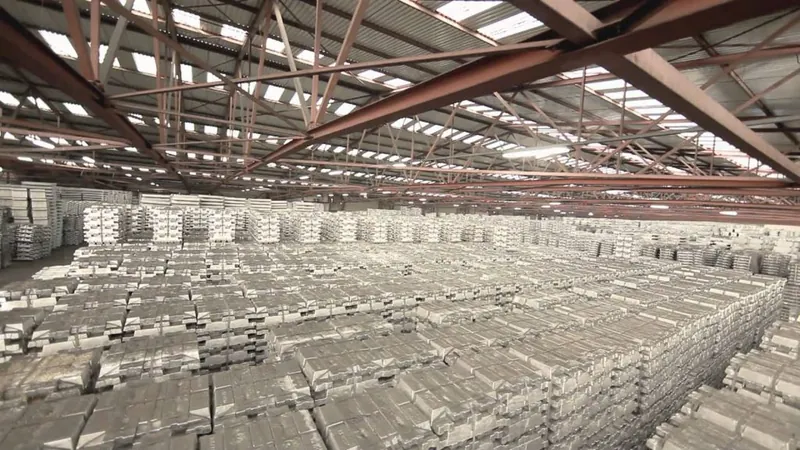
Breaking News: LME Unveils First Warehouses in Hong Kong, But Is It a Mistake?
2025-04-15
Author: Yan
In a groundbreaking move, the London Metal Exchange (LME) has officially approved its first four licensed warehouse facilities in Hong Kong. However, a looming question hangs in the air: will the exorbitant costs in the region stifle growth in this key hub?
The LME, revered as the oldest and largest global platform for industrial metals, aims to enhance access to mainland China—the world’s largest consumer of these metals—by opening facilities in Hong Kong.
This initiative has been on the LME’s radar since the Hong Kong Exchanges and Clearing acquired it back in 2012. Nevertheless, skepticism abounds among warehouse operators, who are worried that the high real estate prices in Hong Kong will make their services pricier compared to nearby countries like Malaysia and Taiwan.
"We’ll give it a shot and see how it goes," commented a representative from a global warehousing company, hinting that any stored metal in Hong Kong would swiftly be transferred to eager Chinese consumers across the border.
Historically, Hong Kong has not been recognized as a significant metal consumption market, raising concerns regarding the viability of these new warehouses.
The LME has licensed two warehouses operated by GKE Metal Logistics, along with one each for Henry Diaper & Co and PGS East Asia, with local partnerships formed with China Resources Logistics Ltd, Sinotrans Warehousing Ltd, and SF Supply Chain Ltd.
Matthew Chamberlain, CEO of the LME, expressed optimism, stating, "Hong Kong is now well-positioned to evolve into a pivotal global metals hub, serving the region while providing seamless access to the mainland China market."
Set to begin operations on July 15, the new Hong Kong warehouses will broaden the LME’s already extensive network of 32 locations. The exchange had previously approved Hong Kong as a delivery point back in January.
Interestingly, while warehouse companies can charge a maximum of 51 cents per metric ton for copper in markets like South Korea and Singapore, in Hong Kong, that figure rises to 61 cents.
Moreover, an internal LME presentation hinted that for the Hong Kong venture to be commercially sustainable, warehouse rents might require government subsidies—yet no official agreements have surfaced as of now. Still, some firms are optimistic that the costs will be competitive.
As the LME embarks on this ambitious chapter in Hong Kong, the eyes of the global metals industry are keenly watching to see if this gamble pays off or if it becomes a cautionary tale.


 Brasil (PT)
Brasil (PT)
 Canada (EN)
Canada (EN)
 Chile (ES)
Chile (ES)
 Česko (CS)
Česko (CS)
 대한민국 (KO)
대한민국 (KO)
 España (ES)
España (ES)
 France (FR)
France (FR)
 Hong Kong (EN)
Hong Kong (EN)
 Italia (IT)
Italia (IT)
 日本 (JA)
日本 (JA)
 Magyarország (HU)
Magyarország (HU)
 Norge (NO)
Norge (NO)
 Polska (PL)
Polska (PL)
 Schweiz (DE)
Schweiz (DE)
 Singapore (EN)
Singapore (EN)
 Sverige (SV)
Sverige (SV)
 Suomi (FI)
Suomi (FI)
 Türkiye (TR)
Türkiye (TR)
 الإمارات العربية المتحدة (AR)
الإمارات العربية المتحدة (AR)